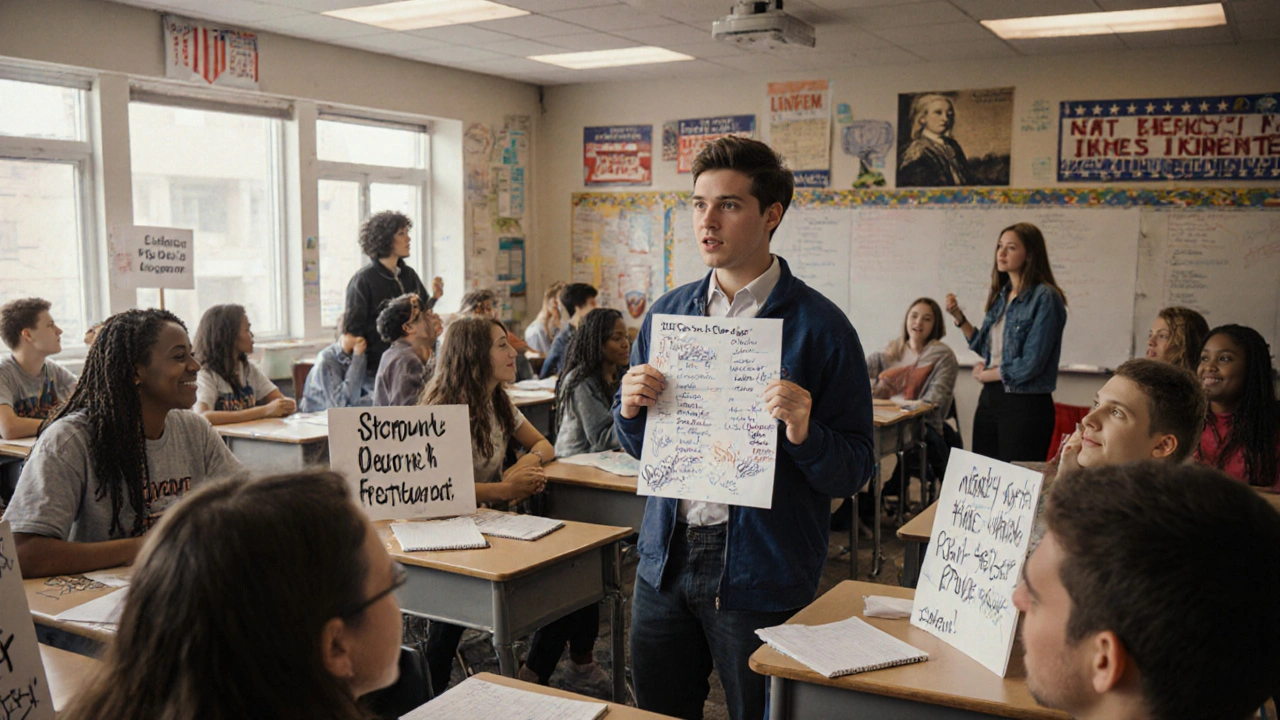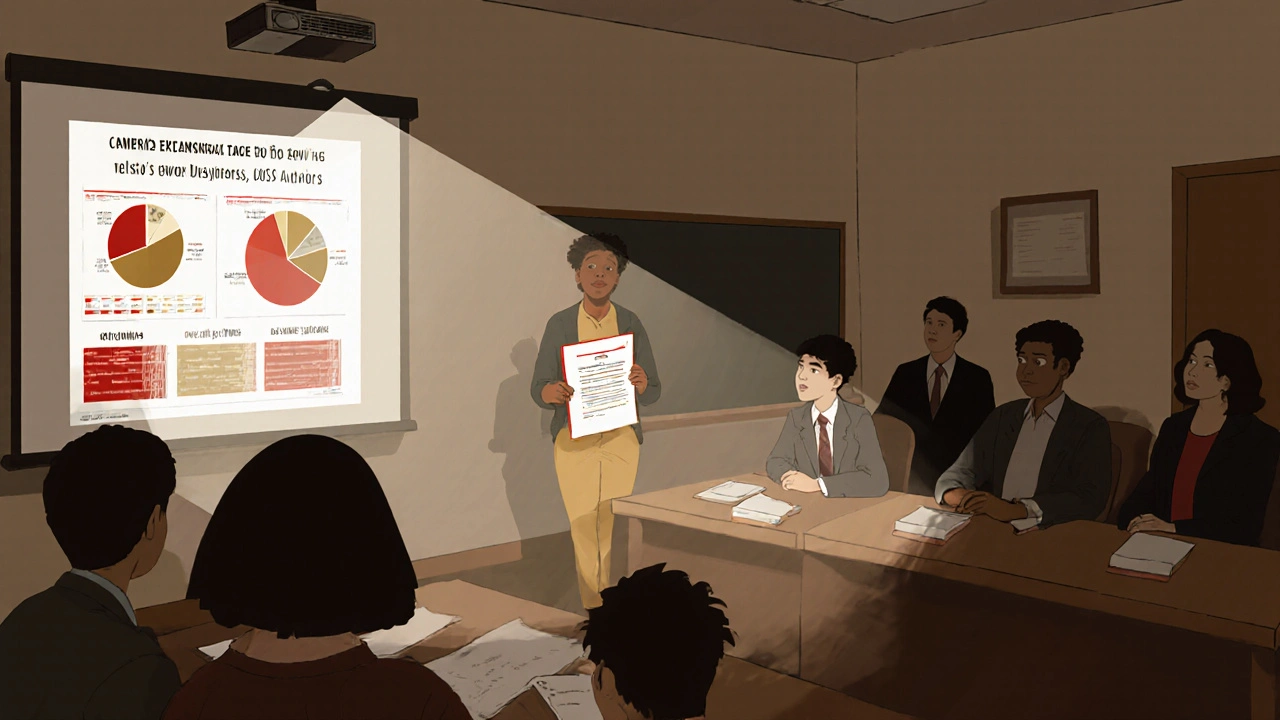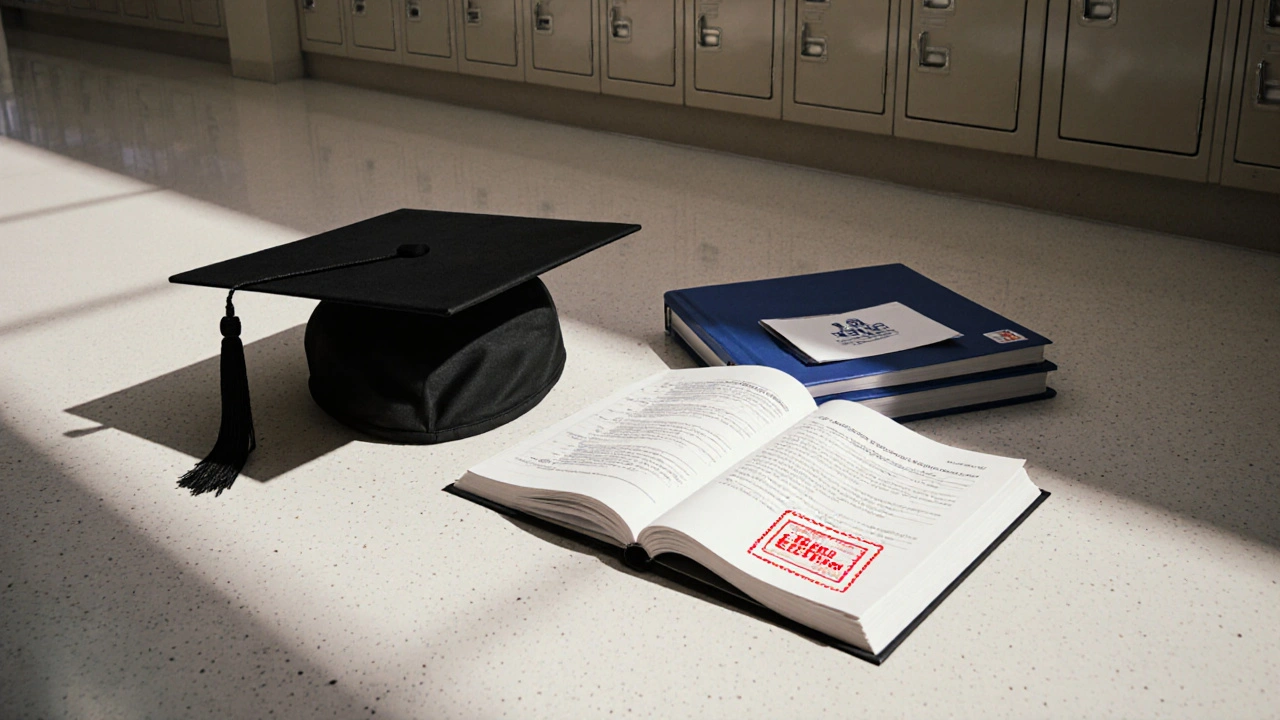How High Schools Shape Political Awareness in Teens

When you think about what high school teaches, math, science, and literature usually come to mind. But what about politics? The truth is, high schools are one of the first places teens start forming real opinions about government, fairness, and power-not through lectures alone, but through everyday experiences.
Classrooms Are the First Political Arena
Most American high schools don’t just hand out textbooks on civics and call it a day. The real lessons happen in the messy, unscripted moments: when a student council election turns into a debate over cafeteria menus, when a teacher lets students vote on class rules, or when a school-wide protest over dress code sparks a conversation about rights and authority.
A 2023 study by the Center for Information & Research on Civic Learning and Engagement found that students who participated in even one student-led political activity during high school were 40% more likely to vote by age 18. It wasn’t the textbook chapter on the Constitution that did it-it was the chance to organize a petition, speak at a school board meeting, or campaign for a peer.
These aren’t rare exceptions. In schools with active student governments, mock elections, and debate clubs, students don’t just learn about democracy-they practice it. They learn how to persuade, how to listen, and how to lose gracefully. That’s not just civics. That’s political training.
The Hidden Curriculum of Power
High schools are tiny societies with their own rules, hierarchies, and enforcement systems. Who gets to speak in class? Who gets punished for breaking rules? Who gets ignored? Students notice these patterns. They start asking: Why does the principal always side with the sports team over the art club? Why do some kids get called out for tardiness while others don’t?
These aren’t just complaints about unfairness-they’re early signs of political consciousness. When a 15-year-old starts questioning authority based on patterns they’ve observed, they’re thinking like a citizen. They’re connecting personal experience to systems of power.
Teachers who avoid these conversations-or shut them down-miss a critical opportunity. But those who turn a hallway argument about bathroom policies into a lesson on equity and policy-making? They’re building lifelong political thinkers.
What Schools Don’t Teach About Voting
Most states let students register to vote at 17 if they’ll be 18 by Election Day. But how many high school counselors actually tell students how to do it? A 2024 survey of 1,200 public high schools in 30 states found that only 28% provided step-by-step voting registration help during senior year.
It’s not that schools are against voting. It’s that they treat it like a distant adult responsibility-not something that starts in the classroom. Meanwhile, students who get help registering at school are twice as likely to vote in their first election, according to data from the National Association of Secretaries of State.
Some schools are changing this. In Minnesota, a few districts now include voter registration forms in graduation packets. In California, schools are required to host a voter registration drive before senior year. These aren’t flashy programs. But they’re effective. They turn abstract rights into concrete actions.

Politics Isn’t Just About Elections
When teens hear ‘politics,’ they often think of TV debates, partisan tweets, or angry town halls. But real political awareness starts with noticing who gets left out. Who’s not invited to the table? Who’s not heard? Who’s punished more often?
High schools are full of these moments. A Black student gets suspended for wearing natural hair. A transgender student is told they can’t use the bathroom that matches their identity. A low-income student can’t afford a field trip. These aren’t just school issues-they’re policy issues.
Students who see these patterns and speak up aren’t being ‘too political.’ They’re learning how systems work. And when schools support those conversations-by letting students lead forums, invite local officials, or research solutions-they’re not just teaching civics. They’re building future advocates.
The Role of Teachers
Teachers don’t need to be activists to shape political awareness. They just need to be honest. If a student asks, ‘Why does the mayor care about the new highway but not our school’s broken HVAC?’-don’t say, ‘That’s not for us to discuss.’ Say, ‘That’s a great question. Let’s look at how local budgets get decided.’
Research from the University of Michigan shows that students who feel their teachers encourage open discussion on controversial topics are 50% more likely to engage in community activism later in life. The key isn’t pushing an agenda. It’s giving students the tools to ask better questions.
That means letting students read news from multiple sources. It means letting them disagree without fear of punishment. It means letting them write letters to elected officials-even if the letter is critical of the school board.

What Schools Get Wrong
Many schools still treat political awareness like a checkbox: ‘We taught the Constitution. Check.’ But that’s like saying you taught swimming by showing a video of a pool.
Political awareness isn’t about memorizing the three branches of government. It’s about knowing how to change something when it’s broken. It’s about understanding that your voice matters-even if you’re 16.
When schools focus only on standardized tests and avoid messy real-world issues, they’re teaching students that politics is something that happens elsewhere. Not here. Not now. Not to them.
But the opposite is possible. Schools that let students run campaigns, analyze local budgets, or interview city council members don’t just raise test scores-they raise civic engagement.
What Works: Real Examples
In Asheville, North Carolina, a group of high school students noticed that their school’s library didn’t carry books by Black authors. They didn’t just complain. They wrote a proposal, gathered signatures from 300 students, and presented it to the school board. The board approved $15,000 for new books. That’s political awareness in action.
In Chicago, a class of juniors partnered with a local nonprofit to track how many students in their district were being arrested for minor school violations. Their report led to a policy change: schools now use restorative justice instead of police referrals for nonviolent behavior.
These aren’t outliers. They’re what happens when schools stop treating politics as a subject and start treating it as a skill.
It’s Not Too Late
Even if your school doesn’t have a student government or a debate team, change is still possible. Start small. Ask your teacher to let students vote on a class project. Start a club that reads news from different perspectives. Write a letter to your local representative about a school issue.
Political awareness doesn’t need a fancy curriculum. It needs space. Space to ask hard questions. Space to be wrong. Space to be heard.
High school isn’t just preparation for adulthood. It’s the first real chance to practice being a citizen. And the lessons learned there don’t fade after graduation-they shape how people vote, how they speak up, and how they see power for the rest of their lives.
Do high schools actually influence whether teens vote?
Yes. Students who participate in student government, mock elections, or voter registration drives in high school are 40% more likely to vote by age 18. The key isn’t just learning about voting-it’s doing it. Schools that make registration easy and encourage civic action see higher turnout among new voters.
Can a teacher be too political in class?
No, as long as they’re not pushing a single viewpoint. The goal isn’t to convert students to a party or ideology. It’s to teach them how to think critically about power, fairness, and policy. Teachers who encourage open discussion, let students use multiple sources, and allow disagreement build stronger political thinkers than those who avoid controversy.
What if my school doesn’t teach civics well?
You don’t need a perfect curriculum to build political awareness. Start by reading news from different sources. Join or start a club that discusses current events. Write letters to local officials about issues that matter to you. Political awareness grows from practice, not just textbooks.
Why do some schools avoid talking about politics?
Many schools fear controversy, complaints from parents, or pressure from school boards. Some believe politics is too divisive for teens. But avoiding these conversations sends a message: your opinions don’t matter. The real risk isn’t talking about politics-it’s staying silent when students are ready to engage.
Is political awareness the same as being activist?
Not exactly. Political awareness means understanding how systems work-who makes decisions, who benefits, and who gets left out. Activism is taking action to change those systems. Awareness often leads to activism, but you can be politically aware without organizing protests. Recognizing injustice is the first step.
ANAND BHUSHAN
November 7, 2025 AT 21:58High school is where you first realize adults don’t have it all figured out either. I saw a student council vote on whether to allow hoodies in class. It was about comfort, but it turned into a debate on authority and personal freedom. That’s when it clicked for me.
Indi s
November 9, 2025 AT 00:46I remember our teacher letting us debate whether the school should ban sugary drinks. We had to research health stats, talk to the cafeteria staff, and present to the principal. I didn’t know I was learning politics until years later.
Rohit Sen
November 10, 2025 AT 14:07Let’s be real-most students don’t care about voting until they need a driver’s license. This article romanticizes student government like it’s some civic awakening. It’s just another club for overachievers.
Amit Umarani
November 11, 2025 AT 22:01There’s a comma missing after ‘However’ in the third paragraph. Also, ‘they’re building lifelong political thinkers’-should be ‘they are.’ And ‘mock elections’ is not a real election. Don’t confuse terminology.
Noel Dhiraj
November 12, 2025 AT 00:29Start small. Ask your teacher if you can read a news article together every Friday. No agenda. Just talk. One student asked why the school budget cuts art but not football. That one question led to a whole class project. You don’t need a program. You just need to care enough to ask.
vidhi patel
November 13, 2025 AT 16:05It is utterly unacceptable that the author employs colloquialisms such as ‘messy, unscripted moments’ in what purports to be an analytical piece on civic education. The tone is unprofessional, the structure is loose, and the data is cherry-picked. A proper academic discourse would not tolerate such linguistic laxity.
Priti Yadav
November 13, 2025 AT 20:07Did you know the Department of Education secretly funds these ‘civic engagement’ programs to make teens easier to control? They want you to think voting matters so you’ll never question who really runs things. The real power is in the corporate donors behind school boards.
Ajit Kumar
November 14, 2025 AT 15:38It is imperative to recognize that the normalization of student-led political activities in secondary education, while ostensibly promoting democratic participation, inadvertently fosters a premature and emotionally charged engagement with systemic power structures that adolescents are neither cognitively nor emotionally equipped to navigate with the requisite nuance. The notion that organizing a petition equates to political literacy is not only reductive but dangerously misleading; true civic competence requires years of philosophical grounding, historical context, and institutional understanding-none of which are cultivated through the performative spectacle of mock elections or student government campaigns. The erosion of academic rigor in favor of performative activism is not empowerment-it is intellectual dilution dressed in the clothing of progressivism.
Diwakar Pandey
November 15, 2025 AT 08:11I used to think politics was just voting. Then I saw a kid in my class get suspended for wearing a shirt that said ‘Climate Emergency.’ The school said it was disruptive. We started a silent protest-everyone wore the same shirt for a week. No speeches. Just quiet. The principal changed the policy. That’s when I realized politics isn’t about who’s right. It’s about who’s heard.